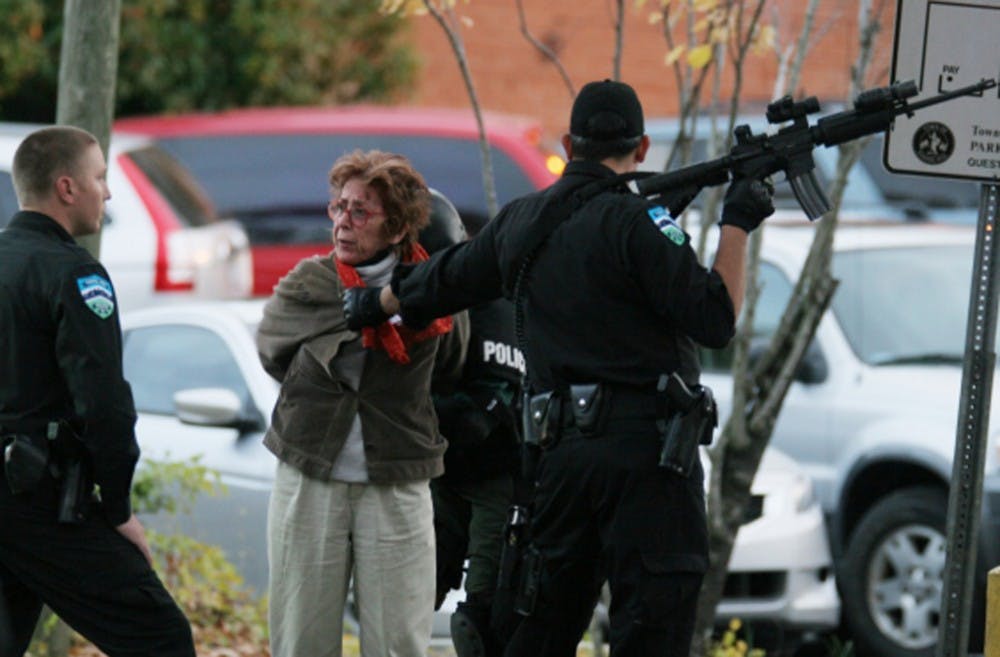Nearly eleven months after the Yates Motor Company building raid, David Maliken is still angry about the way police handled the situation.
In response to heavy criticism from Maliken and other community members, the Chapel Hill Police Department recently announced policy changes it has made since the raid.
A Chapel Hill resident for about six years, Maliken was one of seven “Occupy Chapel Hill” protesters arrested Nov. 13 after members of the group took over the vacant Yates building at 419 W. Franklin St.
“(They claimed) the raid was warranted because there were ‘known anarchists present,’” he said. “Part of the evidence they used to justify the raid was literature that was present. Last time I checked, there’s no law against literature.”
During the raid, a team of police armed with assault rifles broke up the occupiers.
Last week, Chapel Hill Police Chief Chris Blue released a memo detailing the department’s policy changes.
In the months following the raid, the police department received criticism from residents for its strong-handed response, prompting an internal review.
“Our policy manual is an evolving thing,” Blue said. “It’s refined and updated regularly.”
Blue described the police department as a “living organization” that constantly reviews its policies.



